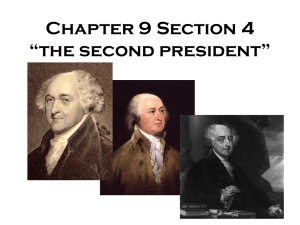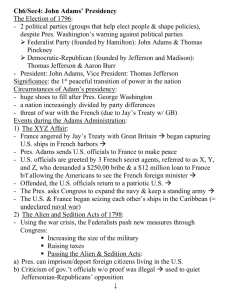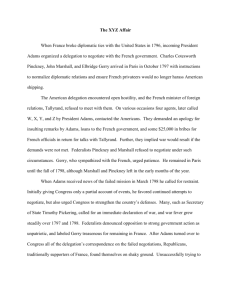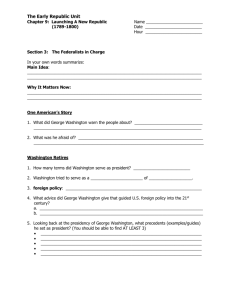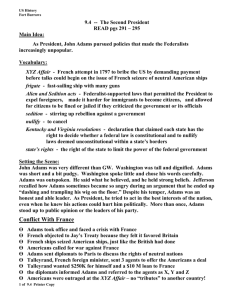xyz and alien sedition
advertisement
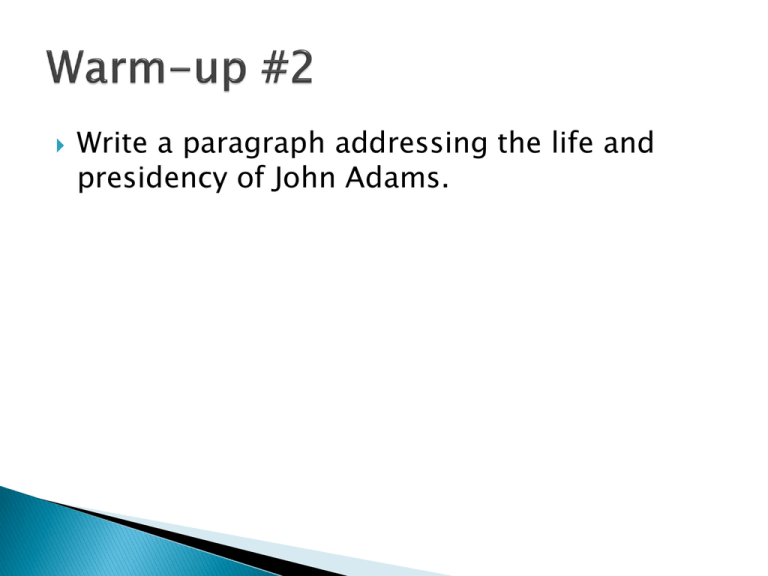
Write a paragraph addressing the life and presidency of John Adams. Watch the video on John Adams. Use the information you learned to help you complete the video quiz. How did Adams’ presidency challenge ideas of freedom of expression and other rights? A. ◦ As soon as Adams became president, he wanted to fix relations between the US and France Relations had been damaged because the US did not help them fight the British and the French were interfering with our merchant ships. ◦ Adams sent US diplomats to Paris to smooth things out and negotiate a treaty to protect US shipping When the diplomats arrived, three French agents told them that the foreign minister (Talleyrand) would only talk with them if he was paid a $250,000 bribe and France was given a $12 million loan American Diplomats said no March 1798—Adams told Congress what happened, substituting X, Y, and Z for the names of the French agents What happened when the diplomats got to France? ◦ Three agents tried to bribe the diplomats into meeting Talleyrand What did the diplomats do? ◦ Refused to pay the bribe What did Adams do next? ◦ Tell Congress what happened Federalists in Congress wanted war with France. Demo-reps want to avoid war. Though Federalists wanted war, Adams eventually made peace with France through diplomacy. Loss of Adams’ popularity and discrimination against French people living in the USA. Democratic-Republicans continued to support France, and this annoyed Federalists 1798—Congress passed four laws—known as the Alien and Sedition Acts ◦ One law made it hard for aliens to become citizens ◦ One law prohibited criticism of the fed gov’t ◦ Designed to crush opposition to war Americans, especially DemocraticRepublicans, were outraged ◦ They said this violated their First Amendment rights What did the Alien and Sedition Acts do? ◦ Made it harder to become a citizen, made criticism of the gov’t illegal Why were they passed? ◦ Silence opposition (mostly Dem-Repub) to war In response, Jefferson and Madison wrote the VA and KY Resolutions ◦ Said Alien and Sedition Acts were unconstitutional; therefore states did not have to obey the law These resolutions weren’t powerful, but supported the idea that states could challenge the federal government The Alien and Sedition Acts expired by 1802

